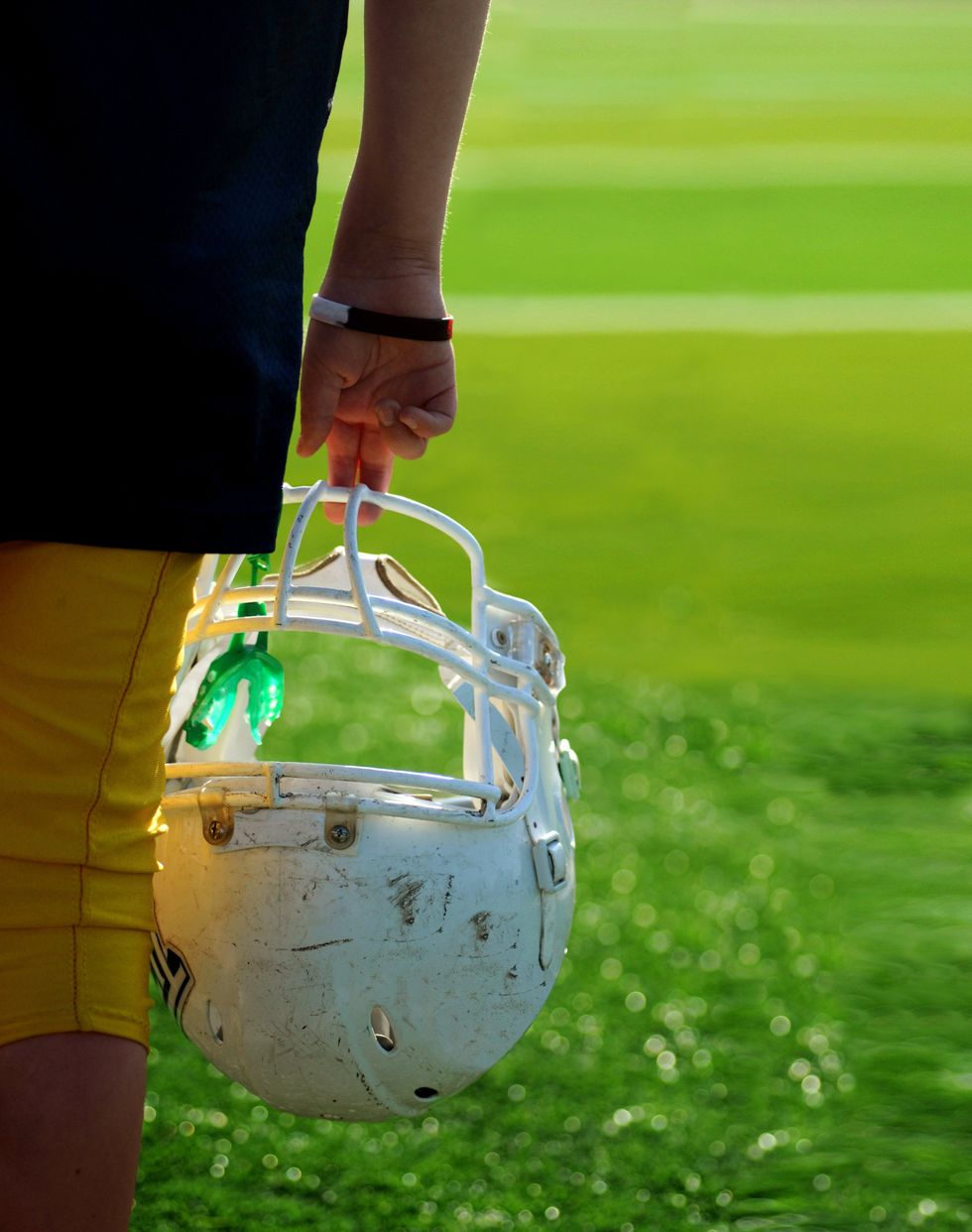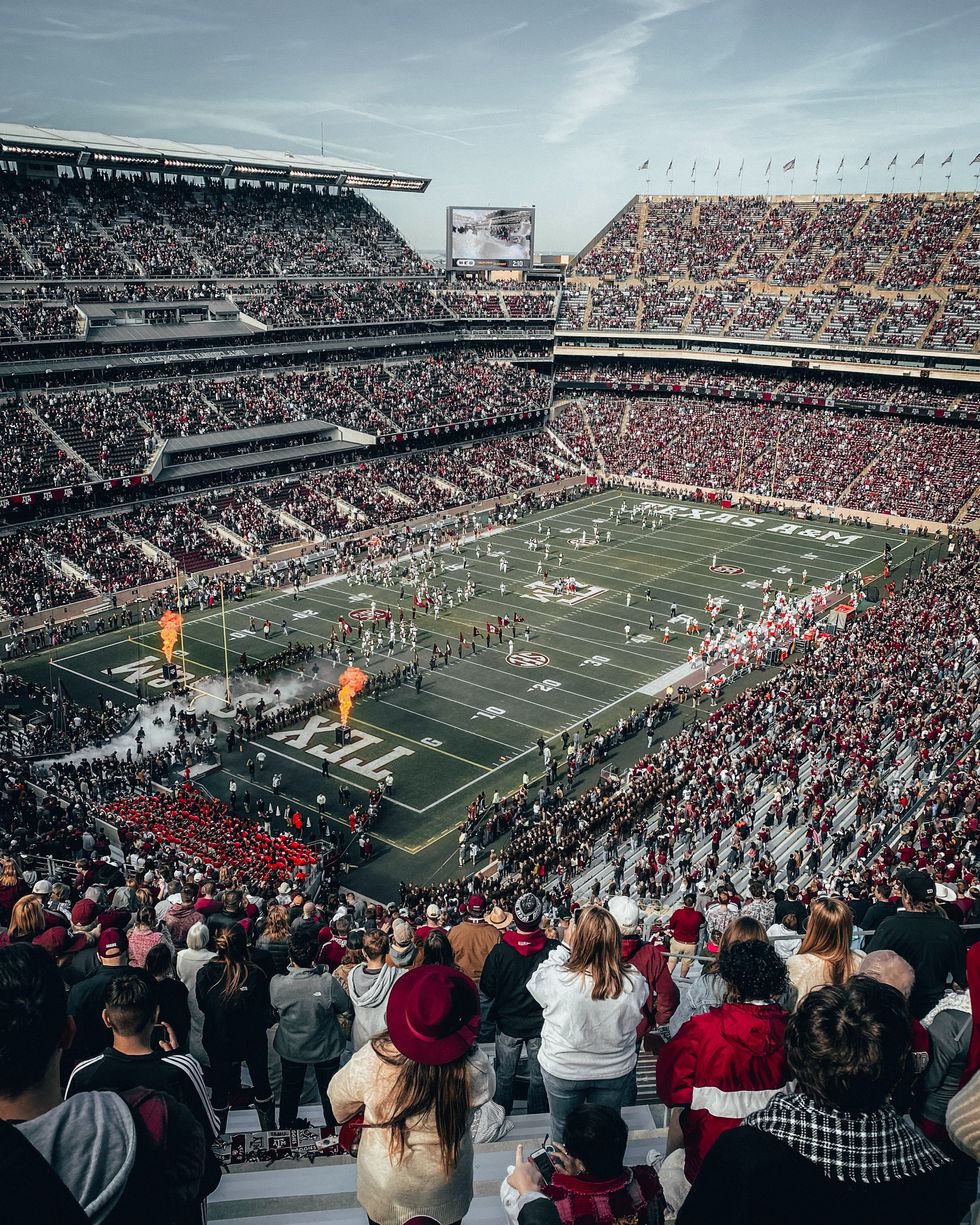Top Stories
Confessions of a Conflicted NFL Fan

Football has been a huge part of my life for as long I can remember, but in the last two years, my interest, especially in the NFL, has waned — replaced by stronger interests in baseball, basketball and soccer. I’d be lying if I neglected to mention that my disinterest is more intimately connected to my political qualms with the NFL than with the sport itself. I’ve been dismayed by the league’s reaction and many fans’ anger toward Colin Kaepernick’s protest against police brutality and racial inequality, and the depiction of these protests as unpatriotic displays by ungrateful players.
This has created a major conflict for me; a conflict made all the more painful because of how much football has meant to me throughout my life and the indelible memories it’s created. I became a football fan when I was seven years old, and that owes much to the influence of my dad. Growing up in Mexico City in the 1970s, he was a huge Steelers fan. As a kid, I was regaled with tales of the feared “Iron Curtain” Pittsburgh defense. My earliest memory as a football fan was Super Bowl XXXVI. For a reason I can’t remember, I chose to root for the Rams. Of course, Tom Brady rallied the Pats to victory, and I was so overcome with heartbreak I bawled the rest of the night; my first exposure to the unnecessary heartbreak caused by being a sports fan.
Later on, my dad introduced me to the NFL films Super Bowl documentaries. I was captivated by Staubach and Bradshaw and compared them to Greek heroes like Jason and Odysseus. Then, with Madden on GameCube, came knowledge of NFL play books. I became a master of the post and the shallow cross. Soon enough, my notebooks were littered with wild diagrams of inconceivable passing plays like Spider 2Y Banana. Eventually, I became a passionate Bears fan (my hometown team) after watching a VHS tape of the 1985 Super Bowl win. I was enamored with the team’s collection of wild characters, and I’ve been a perpetually-disappointed fan ever since.
Throughout my childhood and teenage years, I remember looking forward to the college and pro games all week during the fall. When I went to college, I didn’t watch the same amount of football I had earlier, but I still considered myself a fan, especially as a student at a Big Ten university. But, it was also during this time that I developed a more critical understanding of the sport. I became a supporter of compensating college athletes, and angry with the NFL’s covering up football’s link with concussions and CTE. These criticisms reached their apex with Kaepernick’s protest and its aftermath.
 Photo by Ben Hershey / Unsplash
Photo by Ben Hershey / Unsplash
In fact, it was then where I first saw a correlation between the leftward shift in my politics since the election of Donald Trump and my feelings toward football. This political evolution, spurred on by the rise of right-wing populism, has improved my understanding of race and racism in America and has informed the way I’ve reacted to the Kaepernick saga. Not only do I support him because of free speech considerations, I fully support the reason for his protest. Police brutality against black people in this country is one of the defining racial issues of the current era, and to frame his protest as being against the anthem or the flag is to intentionally erase the content of his message.
The reaction against Kaepernick, from that of the average NFL fan to President Trump’s own comments, has functioned as a cudgel, preventing a black football player from using his platform to push a politically inconvenient position to a large percentage of Americans. The fact that he doesn’t have a job in the league and likely never will again is a signal to every other player to just “shut up and dribble.” It’s a reminder that the owners rule the league and that one must keep them happy if one wants to play.
The public outcry against Kaepernick also carries with it an endorsement of a league that explicitly supports fealty to a military-centric conception of patriotism in which the highest form of devotion to one’s country is to serve in the military or law enforcement. These ideas of patriotism can certainly be found in other sports, but no other league is as committed to maintaining around these ideals as the NFL. Patriotism and the military are central to the NFL’s conception of itself. Watch any NFL game and this is impossible to miss, from the unfurling of a field-sized American flag to the B-2 Spirit flyovers to the Pentagon paying the league to constantly promote the military. I am uncomfortable with this sort of patriotism. All too often it’s used to justify wars and clamp down on dissent, and there’s an unmistakable connection between our military-based patriotic fervor and the misrepresentation of Kaepernick’s protest against police brutality as anti-American. What’s happened is that American ideals have been conflated with the symbols traditionally used to represent them. In the modern American psyche, the flag, the military, and the anthem function as the unassailable living embodiments of freedom and liberty. The NFL, while far from the only culprit, shares a huge portion of the responsibility for creating this cognitive lapse and through it, gains the ability to silence its most outspoken employees.
 Photo by Zabdiel Gonzalez / Unsplash
Photo by Zabdiel Gonzalez / Unsplash
All that said, this shouldn’t be taken as an indictment of everyone who watches and enjoys football. Progressive-minded people can still like the NFL, while remaining critical of the league’s more problematic aspects. But, this certainly is an indictment of those who see any of these criticisms of the NFL as a plot to destroy football by needlessly inserting politics into it. To be an uncritical NFL fan, especially in light of the events of the last two years, is to make an undeniable ideological point.
You can dismiss all these critiques of football as just “politicizing” sports, but to this I answer: I have not politicized anything. The NFL has been political for a long time.
***
So, what’s to be done about all this? Should I really boycott football and the NFL?
My answer: no, I will not be boycotting football and the NFL. Despite everything I’ve said above, I’ve never seriously considered doing so.
I still appreciate the community that football fosters, and I would never want to cut myself off from watching the game with a group of friends or family. Football is still a fun subject to mindlessly bicker about with friends. I still want to continue to debate the quantum physics of what constitutes a catch. And, I like the idea of shutting off my brain for a few hours on a Sunday afternoon to watch the Bears-Packers game.
I don’t want everything in my life to be oriented around political considerations. That just seems exhausting and downright joyless, especially when my mental energy should be devoted to more consequential issues. I don’t want my politics to blend so severely with the culture that the difference between the two is indistinguishable, however valuable looking at culture through a political lens may be.
So, I’ll continue to watch. And I’ll continue to criticize the league for its performative patriotism and the fact that Colin Kaepernick still does not have a job. It may sound hypocritical to consume a product I vehemently criticize, but there will always be things we feel guilty about consuming. That’s just the reality we live in.
Dan is a Chicago-based writer and occasional optimist. His writing has been featured in the Chicago Tribune and The Classical. You can follow him on Twitter @danescalona77














